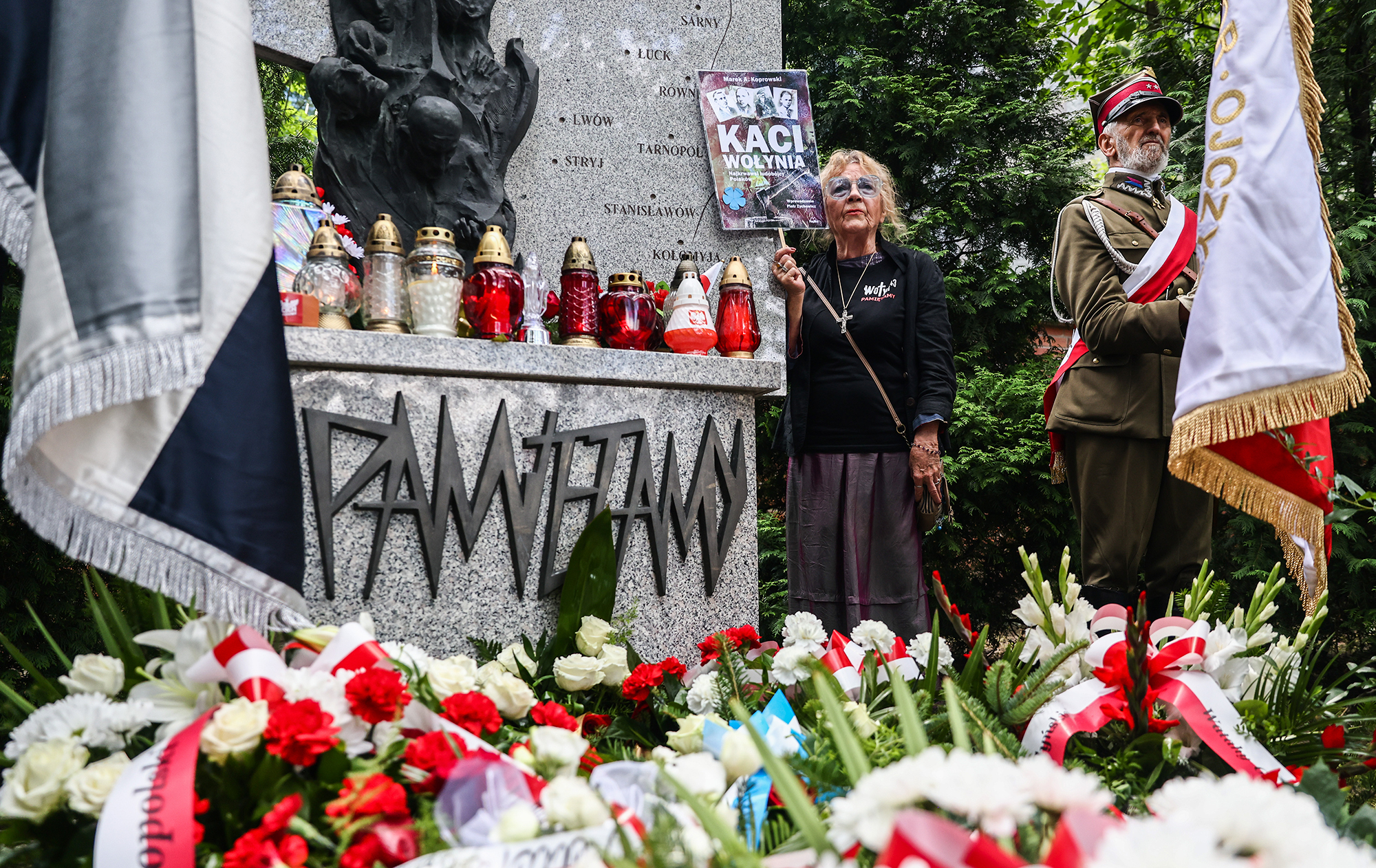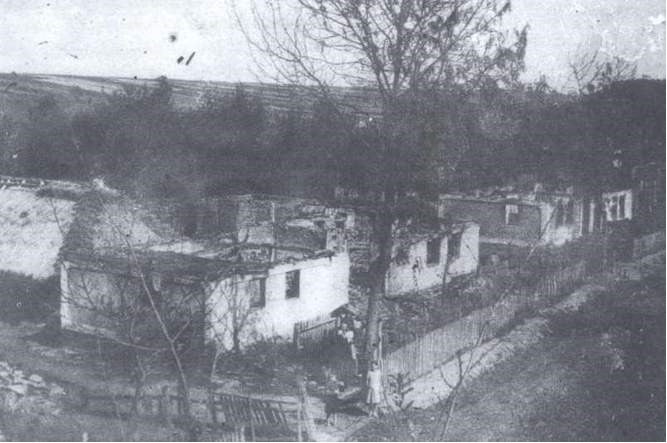Volhynia memorial day: Why July 11 sparks Poland-Ukraine diplomatic strain
 Memorial event for the victims of the Volhynia events (photo: Getty Images)
Memorial event for the victims of the Volhynia events (photo: Getty Images)
Today, July 11, Poland commemorates the victims of the Volhynia tragedy following a recently adopted law. In Ukraine, this decision has been criticized for its one-sided view of historical events that have divided the two nations for decades. Here is more information on the Volhynia tragedy and the causes of disputes between Ukraine and Poland in our report.
Key questions:
- Why did Poland establish July 11 as the Day of Remembrance for the victims of the Volhynia tragedy?
- What is Ukraine's position on Memorial Day in Poland?
- What are the core disagreements between the countries regarding the Volhynia tragedy?
Poland commemorates the victims of the Volhynia tragedy
On July 11, 2025, Poland officially observes the "Day of Remembrance of the Polish victims of the genocide committed by the OUN-UPA on the Eastern Borders of the Second Polish Republic."
The Polish Sejm adopted the memorial day with this title in early June, and President Andrzej Duda signed the relevant law on July 2, 2025.
The choice of July 11 is linked to the fact that this date is considered symbolic as the peak day of mass killings of the Polish population in Volhynia in 1943.
According to Polish historiography, this day marked the climax of anti-Polish actions, particularly in the village of Pavlivka. The Polish side officially refers to these events as the "Volhynia massacre" and classifies them as genocide.
During World War II, in 1942–1943, Volhynia saw conflict between Poles and Ukrainians. As a result of ethnic cleansings carried out by both the UPA and the Polish Home Army (AK), thousands of people from both sides were killed.
Ukraine's response to Poland's decision to establish a memorial day
The Volhynia tragedy remains a painful and controversial page in history, still affecting the relationship between the two countries.
Ukraine's Ministry of Foreign Affairs has criticized the recent decision of the Polish Sejm to establish July 11 as a day of remembrance for the victims of the Volhynia tragedy, calling it inconsistent with the spirit of good-neighborly relations.
"Such unilateral steps do not contribute to mutual understanding and reconciliation, which our countries have been working toward for a long time," the MFA stated.
The ministry emphasized that Kyiv supports scientific and unbiased studies of the difficult pages of common history, believing that the path to reconciliation lies through dialogue and mutual respect.
On July 10, the Ukrainian MFA issued another statement regarding the Volhynia tragedy. "We stand for a true, responsible and balanced historical dialogue, free from politicisation and unilateral interpretations, and rely on the prudence of our Polish partners in assessing the events of our common historical past," the ministry said.
 Memorial event for the victims of the Volhynia events (photo: Getty Images)
Memorial event for the victims of the Volhynia events (photo: Getty Images)
Ukrainian historian Oleksandr Zinchenko, in an interview with RBC-Ukraine, expressed surprise at the re-establishment of July 11 as a Day of Remembrance, noting that such a day had already existed since 2016.
Zinchenko considers the decision illogical, pointing to other, far greater tragedies in Polish history for which no official remembrance days were designated.
According to the Ukrainian historian, the topic of the Volhynia tragedy is increasingly being used by Polish politicians to fuel anti-Ukrainian sentiment and xenophobia in Polish society, especially amid rising support for right-wing and far-right forces. He stresses that these commemorations are more political than memorial in nature.
It should be mentioned that newly elected Polish President Karol Nawrocki has recently come out against Ukraine's accession to the European Union. He justified this statement by Poland's "interests" and referred to the issue of the Volhynia tragedy.
Why Ukraine and Poland can't agree on the Volhynia tragedy
Ukrainians and Poles continue to debate the Volhynia tragedy even 80 years later due to disagreements over responsibility for the events, the number of victims, and the differing historical and political contexts in each country.
Warsaw officially recognizes the events as "genocide" of the Polish nation committed by the OUN and UPA. For Poland, it is an "unresolved generational trauma," and remembering the victims is extremely important. Polish historians assert there were no symmetrical crimes by the Polish side, and place full responsibility on the Ukrainian nationalist underground.
In an interview with RBC-Ukraine, historian Mariusz Zajączkowski compared the Volhynia tragedy with the worst crimes of World War II against the Polish people.
Zajączkowski claimed that in Volhynia and Eastern Galicia, there was no "partisan war" between the AK and UPA, but rather mass killings of unarmed Polish civilians by the UPA.
For its part, the Ukrainian side views the Volhynia tragedy as a complex and controversial phenomenon that involved mutual ethnic cleansing and victims, and, therefore, does not recognize the one-sided classification of the events as genocide.
Ukrainian historians emphasize the broader historical context of the conflict, beginning with the Polish occupation of Ukrainian lands. Historian Roman Kabachiy told RBC-Ukraine that it is unlikely a fully unified interpretation of the Volhynia events can ever be achieved.
He stressed that the Ukrainian side cannot blame the entire UPA solely for the Polish massacres, since it was primarily fighting Soviet and Nazi occupiers. Kabachiy also noted that for many Poles, the red-and-black flag is seen only as the "flag of criminals," while for Ukrainians, it is a symbol of the struggle for independence.
More on the causes of disagreement between Ukrainians and Poles over the Volhynia tragedy can be found in a separate RBC-Ukraine article.
Exhumation as a step toward understanding?
This year, Ukraine began the exhumation of Poles who died during the Volhynia tragedy. This effort was the result of lengthy negotiations between Ukraine and Poland and the lifting of the moratorium on exhumation work, which had been in effect since 2017.
The first works began in April 2025 in the village of Puzhnyky in the Ternopil region, where a mass grave was found containing the remains of 42 people, including about 10 children. Discovered artifacts indicate that a significant portion of the victims were Roman Catholics.

Burned village of Puzhnyky (photo: puzniki.pl)
Alina Kharlamova, head of the Ukrainian archaeological team, told RBC-Ukraine that these excavations are of great significance for both countries.
For Poles, it is a chance to properly re-bury their ancestors, and for Ukrainians, a step toward open dialogue and overcoming myths often exploited by Russian propaganda. The archaeologist expressed hope that similar work will continue in other regions of Ukraine.
For his part, Polish historian Mariusz Zajączkowski called the exhumation in Puzhnyky a turning point after years of misunderstanding on the issue. In his view, both countries have been victims of Russian provocations that began in 2015. He recalled the desecration of monuments in Ukraine and Poland, as well as the shelling of the Polish Consulate General in Lutsk in 2017, which was likely organized by Russian special services.
The historian acknowledged that harmonizing the historical narratives of Ukraine and Poland is a very difficult task, but called for leaving behind the "demons of the past" and honoring all the dead regardless of nationality.
Sources: information from the press service of Polish President Andrzej Duda, a Facebook post from the Polish Sejm, statements from the Ukrainian MFA press service, and interviews with historians Oleksandr Zinchenko, Roman Kabachiy, Mariusz Zajączkowski, and archaeologist Alina Kharlamova given to RBC-Ukraine.

